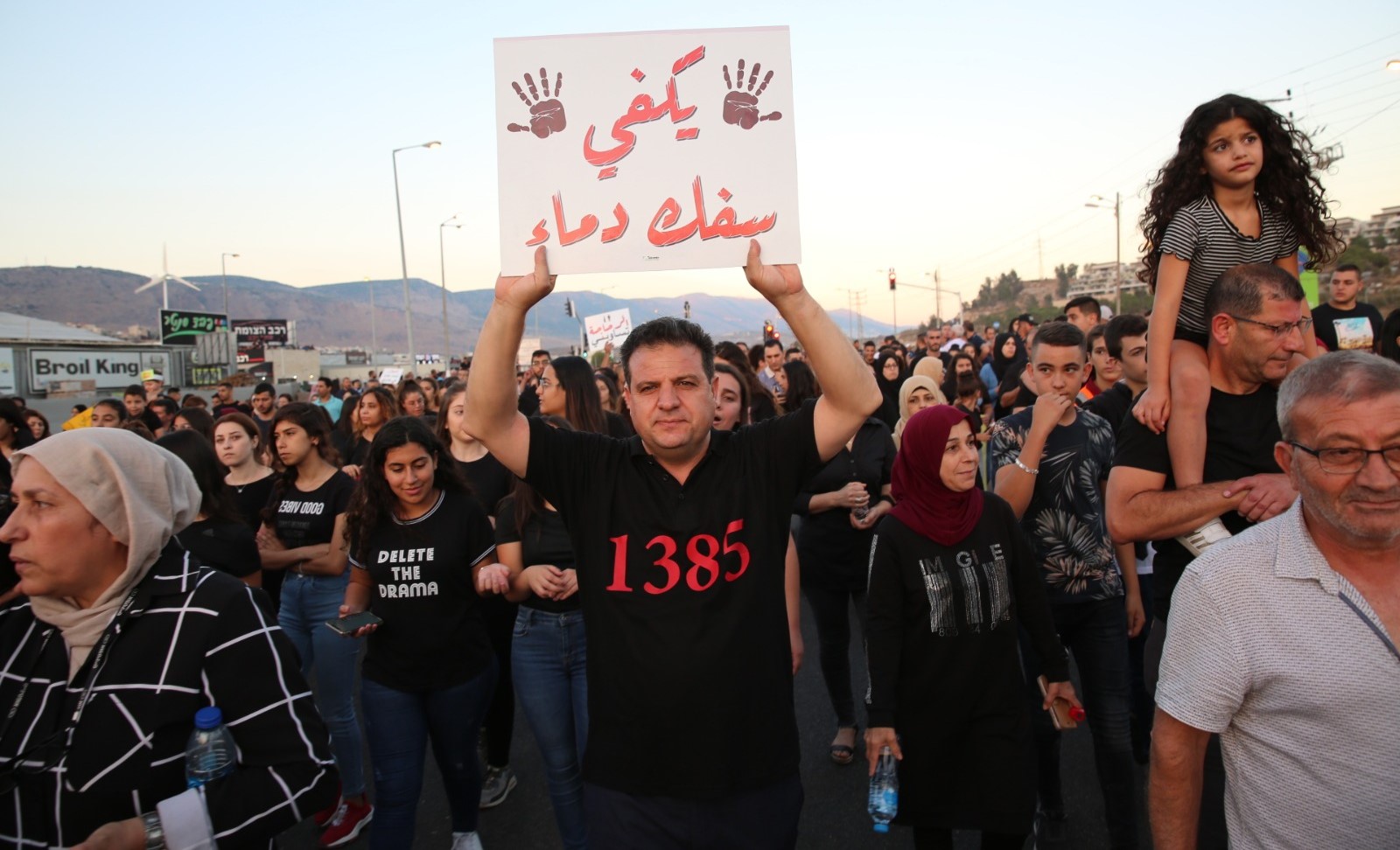Thousands of Arab-Palestinians citizens demonstrated Saturday, October 5, at several locations throughout Israel, as they continue their protests against violence and murder within Arab communities, and the neglect of the police in seriously addressing the bloody phenomenon. Hundreds of people blocked roads from the Shoket junction in the Negev, during a fourth day of massive demonstrations, to Majd al-Krum in Upper Galilee.

MK Ayman Odeh during the demonstration against violence, last Tuesday in Majd al-Krum; the sign he’s holding aloft reads “Enough bloodshed.” The number 1385 on his shirt is the toll of Arab citizens of Israel who have died since the year 2000 as a result of violence. (Photo: Zo Haderech)
The Arab Higher Monitoring Committee, the umbrella body of all Arab citizens, announced plans for ongoing protest actions, including a convoy of vehicles from communities in the north and south that would head toward the Prime Minister’s Office in Jerusalem. Two large vehicle convoys, one from Majd al-Krum in the North and one from Shoket junction in the South, will drive to outside the government offices in Jerusalem this week.
Mass protests are planned for October 21 in Nazareth and October 27 in Ramle outside the police headquarters of the two cities. On the 27th, organizers plan to set up protest tents outside government offices in Jerusalem. The Arab leadership also plans to launch a hunger strike and protest in front of government offices there.
The Arab Higher Monitoring Committee blames the Israeli leadership, primarily the police, for closing their eyes to the activities and arms trafficking of criminal gangs “This is a racist policy aimed at dismantling our society from within and hurting the social fabric of the Arab public,” the committee said. “The right to personal security is a basic right that cannot be negotiated. The committee sees the placement of Border Police in Arab communities as an attempt to restore a military government (which existed in the Arab towns and villages within Israel from 1949 to 1966) and demands a comprehensive plan which includes fighting against crime in coordination with elected officials.”
Hadash MK Ayman Odeh, the head of the Joint List, called on the Jewish community to join the protests, saying that a society without weapons should be the ideal for everyone. Hadash MK Youssef Jabareen of the Joint List, who joined protesters blocking a highway in the north of Israel, said that the protests would continue until tangible action is taken by the authorities.
Related:


